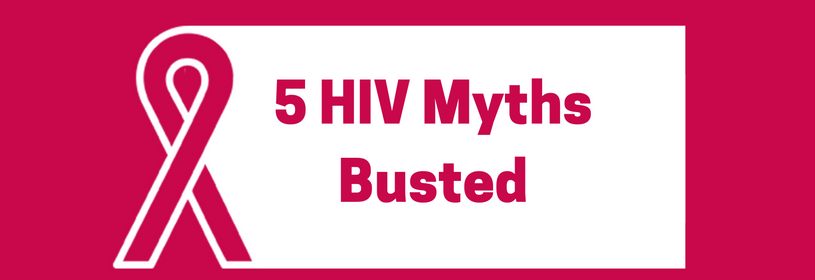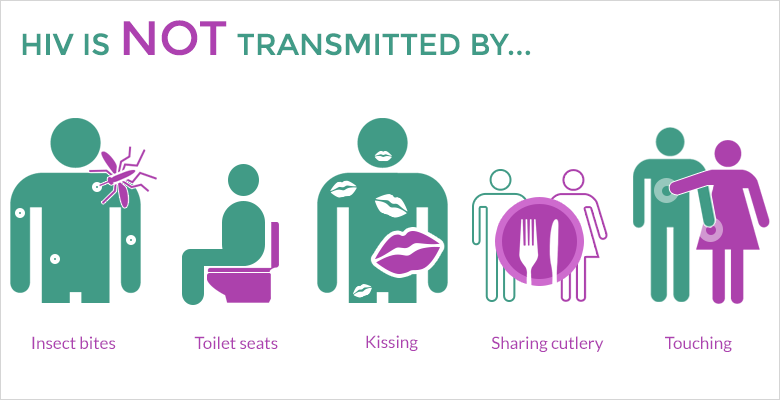5 HIV Myths Busted

The number of people diagnosed with HIV has almost doubled in the last ten years. We celebrated World AIDS Day yesterday to tell the world that around 34 million people have HIV across the world and the number is alarmingly rising. For all those who’ve been thinking HIV and AIDS are the same, we’ve got to enlighten you. HIV is basically a virus called Human Immunodeficiency Virus that tends to stay and live in the body. As a result of HIV, the person’s immune system weakens and becomes weak in a way that the body stops fighting off pathogens, which it otherwise does. So HIV is a virus and AIDS (Acquired Immunodeficiency Syndrome) is an illness that makes people vulnerable to a range of other diseases.
Image source – www.avert.org/hiv-transmission-prevention/myths
Here are a few misconceptions about HIV that people often tend to believe.
1. HIV can be cured: This might sound disheartening but the truth is that it can’t be completely cured (as of date). There are medications available to suppress the activity of the HIV in infected individuals which in turn can increase their lifespan by a few more years. There are no medications available to completely eliminate the virus out of the body.
2. HIV can spread through toilet seat: HIV cannot be transmitted without blood or certain other body fluids (direct contact). Casual contact like using the same plate, toilet, hugging, shaking hands or even kissing have no risks associated. One often tends to hear rumours like how a mosquito can spread HIV or even a drink infused with HIV virus. It is not true! HIV can only be transferred through unprotected sex, blood transfusions or from a mother to a child during pregnancy.
3. Women with HIV shouldn’t get pregnant: Although pregnant women may transmit their HIV to the foetus, there also have been cases where the new born baby is born completely healthy and free of the virus.
4. It’s okay to have unprotected sex if you and your partner have HIV: Most of the people are not aware of something called HIV ‘superinfection’, which happens when an HIV infected person is affected by a second strain. It mutates and makes the situation more critical. Using condoms is the best way to keep things at bay.
5. If you’re on treatment, you can’t spread the virus: Remember that HIV is a very strong virus and antiretroviral drugs can only suppress their effect. The medications you take don’t give you a green card to have unprotected sex or share razors/needles.
References:
http://www.medicinenet.com/scr ipt/main/art.asp?articlekey=19 039
http://www.everydayhealth.com/ hiv-aids/hiv-facts-and-myths-q uiz.aspx

